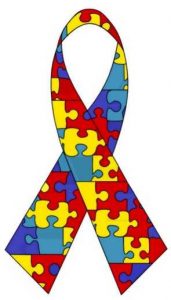About Autism
Autism & Autism Spectrum Disorders

When people refer to “Autism” today, they are usually talking about Autism Spectrum Disorder (ASD), which is a brain-based disorder characterized by social-communication challenges and restricted repetitive behaviors, activities, and interests.
ASD is a complex developmental disability; signs typically appear during early childhood and affect a person’s ability to communicate and interact with others. The Centers for Disease Control describe ASD as: “a developmental disability that can cause significant social, communication and behavioral challenges.”
ASD is defined by a certain set of behaviors and is a “spectrum condition” that affects individuals differently and to varying degrees. The learning, thinking, and problem-solving abilities of people with ASD can range from gifted to severely challenged. Some people with ASD need a lot of help in their daily lives, others need less.
There is often nothing about how people with ASD look that sets them apart from other people, but people with ASD may communicate, interact, behave, and learn in ways that are different from most other people.
Autism is about 4.5 times more likely to affect boys than girls and is found in all racial, ethnic, and social groups.
There is no known single cause of autism, but increased awareness and early diagnosis/intervention and access to appropriate services/supports lead to significantly improved outcomes.
Signs of ASD
When it comes to social interaction and communication behaviors, some of the signs of ASD include:
- Little to no eye contact
- Not looking or listening to people
- Not sharing the enjoyment of activities or objects with other people
- Not responding, or being slow to respond to someone calling their name
- Having trouble with conversation
- Making movements, gestures or facial expressions that don’t match the scenario
- Unusual tone of voice that sounds robot-like or flat
- Difficulty with understanding someone else’s point-of-view
- Can’t predict or understand others’ actions
Signs of repetitive behaviors consist of:
- Exhibiting echolalia, which is having unusual behaviors and repeating certain behaviors
- Extreme interest in specific things like facts, numbers or details
- Easily upset by slight changes to a routine
- Having an intense interest with things like parts of an object or moving objects
- Being more or less sensitive than others to things like sound, light or clothing
Be Involved. Act Now. Champion Autism
If you have or know a loved one exhibiting the signs of Autism Spectrum Disorder in San Diego, CA, then contact Champion Autism. Our sole purpose is to find the help you need in the San Diego, CA area for families dealing with autism. Get in touch with us today to learn about how we can help!


